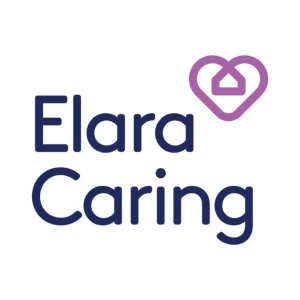Elara Caring
We care where you are. Elara Caring delivers exceptional personalized in-home care services by hiring compassionate people who believe in taking care of our patients, our clients, our care providers and each other. We personalize our approach to meet the unique needs of our patients—wherever they call home.
Understanding In-Home Care Options for Memory Care Patients
Personal Care Services for Memory Care Patients
Personal care services offer non-medical assistance with everyday activities, known as Activities of Daily Living (ADLs). These services are provided by caregivers trained to help individuals with tasks they find difficult to do on their own.
Services Include:
- Assistance with bathing, grooming and dressing
- Help with eating and meal preparation
- Support with toileting and incontinence care
- Mobility assistance and transferring (e.g., getting in and out of bed)
- Light housekeeping and errands
How Personal Care Services Support Memory Care Patients
For individuals in the early to mid-stages of memory loss, personal care services can significantly enhance their ability to live independently and maintain a sense of dignity. Memory loss can make once-routine tasks challenging, such as remembering to bathe or prepare meals, leading to frustration, confusion or even safety concerns. Caregivers provide gentle reminders and hands-on help to ensure these tasks are completed.
Additionally, personal care providers can monitor your loved one’s overall wellbeing, helping to identify any changes in behavior or physical health that may indicate the need for more advanced care. They also offer companionship, which is essential to preventing isolation and keeping your loved one mentally and emotionally engaged.
Skilled Home Health Care for Memory Care Patients
Skilled home health care is a medical service provided wherever patients call home by licensed professionals, such as nurses, physical therapists and occupational therapists. It requires a doctor’s order/referral and is often started after a hospital stay, surgery or medical diagnosis that requires specialized treatment.
Services Include:
- Medication management
- Monitoring vital signs and managing chronic health conditions
- Wound care and post-surgical recovery
- Physical, occupational and speech therapy
- Pain management and symptom control
How Skilled Home Health Care Support Memory Care Patients
As memory issues progress, patients often develop additional health problems that require medical supervision. Skilled home health care provides the medical attention your loved one needs without requiring them to leave the comfort and familiarity of their home. For example, patients with dementia may forget to take their medications, which can worsen their condition or lead to other health complications. A skilled nurse can manage their medication regimen, ensuring they stay on track and avoid adverse effects.
Additionally, therapists can work with your loved one to help maintain mobility, improve strength or address communication difficulties caused by cognitive decline.
Hospice Care for Memory Care Patients
Hospice care is a specialized form of care designed for patients in the final stages of a terminal illness. The focus shifts from curing the disease to providing comfort, pain relief and emotional support, allowing the patient to live their remaining time with dignity and quality.
Services Include:
- Pain and symptom management
- Emotional and spiritual support for the patient and family
- Assistance with personal care and hygiene
- Medication management focused on comfort rather than treatment
- Bereavement support for family members after the patient passes
How Hospice Care Supports Memory Care Patients
When a patient with memory issues reaches the final stages of their illness, hospice care offers compassionate support tailored to their unique needs. Memory loss can make it difficult for patients to express pain or discomfort. Hospice professionals are trained to recognize subtle signs of distress and provide comfort care that eases symptoms like agitation, anxiety or physical pain.
Hospice care is also invaluable for family members. Hospice care helps relieve the burden on families by providing professional caregivers who handle the patient’s day-to-day needs. This allows family members to spend meaningful time with their loved one, focusing on connection rather than caregiving tasks. Hospice care also offers emotional and spiritual support to the entire family, helping them navigate the end-of-life process with greater peace and understanding.
Navigating the care options for a loved one with memory issues can be challenging, but understanding the roles of personal care, skilled home health and hospice care can help you make informed decisions. These services each provide unique benefits, ensuring that your loved one receives the care they need at every stage of their journey.
Elara Caring can help meet your loved one’s memory care needs. Learn more about services by contacting your local branch today.


